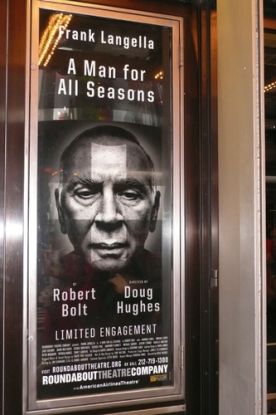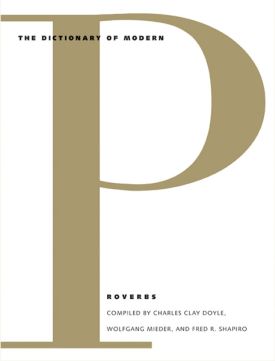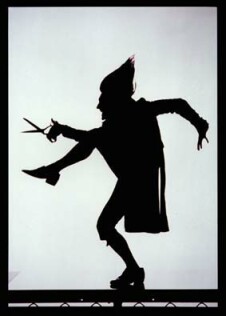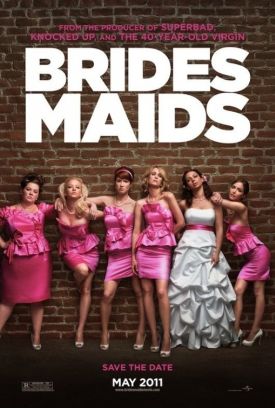A Wilderness of Mirrors
From The New CriterionNixon and Haldeman in happier times
Way back at the beginning of the year, when we were still living in the golden age of Good King Barack and had not yet descended into the hell-hole that America has become under his much-despised successor, The New York Times ran a curious piece by Peter Baker claiming that, after almost half a century, long-dead former President Richard M. Nixon had finally been rumbled. There it was, in black and white: the long-desired, long-anticipated Smoking Gun (to mix our metaphors) proving that the long-rumored October Surprise of the 1968 election by which Nixon had supposedly attempted to sabotage the Paris Peace talks with North Vietnam and the Viet Cong in order to boost his own presidential campaign had now been proven to be factual. So said Mr Baker anyway, doubtless in the spirit of the “truth” which the Times has lately been claiming as its exclusive property.
And what did Mr Baker and the Times suppose this fuliginous firearm to be? Why, the word “monkey wrench,” used as a transitive verb, though with only the pronoun “it” as its object. Pay close attention now. The tell-tale verb appeared in handwritten notes taken by Nixon aide H.R. Haldeman, who was to become his chief of staff in the White House and one of the chief fall-guys of Watergate, of a telephone conversation he had with candidate Nixon about then-President Johnson’s bombing halt in Vietnam. Forgive me for all this ancient history, but I’ll soon come to the point. Nixon, not implausibly, saw Johnson’s stopping of the air campaign as a gimmick — an October Surprise of his own, if you will — to boost the campaign of his, Johnson’s, vice-president, Hubert Humphrey, Nixon’s electoral rival that autumn.
Well, that’s politics, you might think. Not when it came to Nixon it wasn’t. In its context, the note and its reference to “monkey wrenching” appear to me to refer to the bombing halt, which Nixon was instructing his trusted aide to do whatever he could to expose and discredit, since it would have signaled to the enemy America’s willingness to give up the fight. But a reference in the same memorandum to Anna Chennault, who was Nixon’s back-door access to South Vietnamese President Thieu (hang on, I’m getting there; just give me another minute or two) could be interpreted as naming her as the monkey wrencher, and the act of monkey wrenching as the exertion of her influence on Thieu to resist any pressure from Johnson to come to terms with the enemy in time to give him (and, vicariously, Vice-President Humphrey) a diplomatic triumph before the election.
Phew! Never mind the irrelevance of all this convoluted reasoning to the fact that there was never the slightest prospect of a sudden peace agreement when they were still arguing over the shape of the conference table. In fact, negotiations dragged on throughout Nixon’s first four-year term. Nor did Thieu need any pressure from Anna Chennault (or anybody else) to resist what he and Nixon both would have seen as a de facto surrender to the communist enemy. And yet, to Mr Baker and John A. Farrell, the Nixon biographer who discovered the Haldeman memo, here was proof positive that Nixon was guilty of what Johnson was said privately to have described as “treason.” It just goes to show you, not only that Nixon-hatred never dies at The New York Times, or on the left generally, but also that, for the media, there can be no statute of limitations on scandal — not, at least, so long as the scandals of the past can have their political usefulness in the present.
We had to wait a few weeks to discover the usefulness that the Times had found in this particular scandal. Of course there was what must have seemed to Times editors the obvious headline to a review of Mr Farrell’s book: “‘Richard Nixon,’ Portrait of a Thin-Skinned, Media-Hating President.” Remind you of anyone? But it took a piece by the Times’s columnist Nicholas Kristof to convey the full, feculent flavor of the scandal banquet being prepared for us by the Farrell revelation: “There’s a smell of treason in the air” was the Times headline to Mr Kristof’s op ed column:
The greatest political scandal in American history was not Aaron Burr’s shooting of Alexander Hamilton, and perhaps wasn’t even Watergate. Rather it may have been Richard Nixon’s secret efforts in 1968 to sabotage a U.S. diplomatic effort to end the Vietnam War.
Doesn’t that smooth transition from “was” in the first sentence to “may have been” in the second just epitomize the sweetest thing there is about scandal? Nothing needs to be proven, no criminal act to have been committed, for even a charge as serious as “treason” to be wheeled out and fired off like a cannon, preferably at the already shot-to-pieces reputation of someone who cannot defend himself. Mr Kristof was able, then, to make the equally smooth transition from Nixon to — guess whom?
Nixon’s initiative, long rumored but confirmed [sic] only a few months ago, was meant to improve his election chances that year. After Nixon won, the war dragged on and cost thousands of additional American and Vietnamese lives; it’s hard to see his behavior as anything but treason. Now the F.B.I. confirms that we have had an investigation underway for eight months into whether another presidential campaign colluded with a foreign power so as to win an election. To me, that, too, would amount to treason.
Well, there it is, folks. No more pussy-footing about with the airy subleties of mere innuendo! The charge on the table against President Trump now was said to be (hypothetical) treason.
In another era, that might have been something of a bombshell, but no longer. Mr Kristof’s sensational allegation passed almost without notice in the rest of the media, where the addiction to scandal has now reached the stage at which even mainlining pure and unadulterated accusations of treason doesn’t give them the same high as once that “third-rate burglary” did. Our political culture is beginning to resemble that presided over by a third world despot like Nicolás Maduro of Venezuela, who only the other day had an opposition party leader arrested on a charge of treason. Ho hum. Who there, besides the victim, even notices such things anymore?
Mr Kristof himself didn’t bother with the pretense of being horrified to think that his country’s chief elected leader could be guilty of such a crime, or to find it in any way difficult to believe. On the contrary, it was only too obvious how eager he was — he and the whole media milieu from which he issues — to believe that or, indeed, anything else, so long as it might be to the discredit of Mr Trump. Neither he nor they are any more disinterested in making such an allegation than Lyndon Johnson was in accusing Nixon of treason, and yet it never seems to occur to them that this might cast any doubt on the “truth” of their reporting or analysis about either of the two hated Republican presidents.
Haldeman, who died in 1993, will long be remembered not only for his role in Watergate — come to think of it, what was his role in Watergate? — but for having said: “We are getting into semantics again. If we use words, there is a very grave danger they will be misinterpreted.” This gnomic utterance is listed by Steven D. Price among The 1001 Dumbest Things Ever Said, which seems a bit unfair. Obvious, yes. Dumb, no. Perhaps we could make it sound a little cleverer if we translated it into French. Qu’on me donne six lignes de la main du plus honnête homme, j’y trouverai de quoi le faire pendre. That was how Cardinal Richelieu was said to have put it nearly 400 years ago. “Let me have six lines from the hand of the most honorable of men, and I will find therein wherewith to hang him.” That was a century and a half before the Cardinal’s spiritual successors of the French Revolution had the guillotine to speed up the process of dealing with the pre-convicted. The story is told that one of Richelieu’s secretaries, seeking to test him, wrote the words: “One and two are three.” Instantly the Cardinal replied: “Blasphemy against the Holy Trinity! One and two make one.”
I believe that the secretary was not hanged, but his lesson appears to have been lost on the prelates of the media today, who seek to wield a power not entirely unlike that of Richelieu under Louis XIII (or Señor Maduro today), which was acknowledged to be moral as well as administrative — and no less absolute either, since the Democratic party in Congress was brought to heel. The Cardinal, at least, was honest enough to recognize that “investigations” undertaken out of hostility towards their subject can be no more than a charade designed to produce a predetermined outcome. Likewise, the pretense of the media (and their creatures in Congress) of an investigation into Mr Trump’s “collusion” with Russia — the word is itself redolent of the treasonous, though no one seems to know or care about what, exactly, they might have been colluding to do — is the most shameful example yet of the actual mendacity of those who are forever proclaiming their exclusive property in the “truth.”
Still another way to put it would be to say that the supply of scandal rises to meet the demand, and the demand has never been higher than it has been under the hated Trump regime — unless it was under the equally hated Nixon regime. For I would like to suggest that there is a bit of a pattern here. Surely it cannot be quite coincidental that the two Republican presidents most disliked by the media on their election day have also been the two most (to use the media cliché) “scandal-plagued” presidents of all time, or at least since Mr Trump’s self-designated model, Andrew Jackson, a man who represented a similar outrage to the elites of his day, and who also rather enjoyed outraging them. The difference is that, today, the media don’t dare acknowledge their own elite status and so must implausibly pretend that the President represents a threat not to them but to the morality and the democracy and the security and the good government and even the existence of the whole country.
Are you frightened yet? Well, they don’t appear to be. They make their dire forecasts of national and even world doom with the same insouciance that Nicholas Kristof makes his accusation of treason. And somehow life goes on. When everything is a scandal, then nothing is a scandal — which may also have been Mr Trump’s insight in continuing to trade accusations with the media — including the accusation, further reminiscent of Watergate, of “wiretapping” against his predecessor. Each repetition of the charge (and there were many repetitions) then became a further scandal, which is why there was never a mention of it that I saw in either The New York Times or The Washington Post without the cordon sanitaire around it of some such formula as “unfounded”, “unproven”, “unsupported” or “without evidence.” And yet evidence, if hardly conclusive, was not lacking if you counted the leaks by intelligence services to the media of private conversations of Trump associates.
The skeptical epithets continued even after, in response to a Bloomberg report by Eli Lake, Mr Obama’s national security adviser Susan Rice admitted (having previously denied it) to having “unmasked” the names of these Trump associates in transcripts of their phone calls, said to have been “incidentally” collected because they were talking to Russians already under surveillance. And, of course, skepticism only increased when Mr Trump then inferred, not unreasonably I think, the distinct possibility of Ms Rice’s thus being implicated in facilitating the illegal — indeed, felonious — leaks to the media. Hence the Washington Post online: “Susan Rice may have committed a crime, Trump says without providing evidence.” Likewise, The New York Times: “Trump, Citing No Evidence, Suggests Susan Rice Committed Crime.” This, remember, was the paper whose columnist had not scrupled to “suggest,” and with no more evidence, that the President himself had been guilty of treason. If ever a pot had called a kettle black, that pot could have gone to work for The New York Times and no questions asked.
There was a further symmetry between the “collusion” and the “wiretap” stories in the way that each was said to be a cunning “distraction” by the other side from the real scandal — which was, therefore, the real distraction for the first side. When Susan Rice’s “unmasking” was also said to be a distraction, it became a distraction from the distraction from the distraction. For those, if there were any, who could tear themselves away from this media ping-pong match, the original distraction was from any serious attention to what the Trump administration intended to do or actually was doing on behalf of our security, our economy and our laws. And for whose benefit, we might ask ourselves, was that distraction?
One answer, certainly, is the media’s. “Distraction” from scandal must be, of course, itself a scandal. And so the media’s demand for ever more scandals could be easily and cheaply satisfied while substantive consideration of what the administration was doing which did not lend itself to further scandal reporting — and, to hear the media tell it, there was little enough of that — could be infinitely deferred. And all without even the allegation of actual criminal wrong-doing, unless you count Mr Kristof’s charge of treason. “Trump Tries to Deflect Russia Scrutiny, Citing ‘Crooked Scheme’ by Obama,” headlined The New York Times over an article by our old friend Peter Baker (with Matthew Rosenberg). But how could we not take the Times’s decision to interpret Mr Trump’s remarks as an attempt to “deflect” their reporters from something else as itself an attempt to deflect their readers’ from Mr Trump’s accusation of the alleged “Crooked Scheme” against Mr Obama? It all must have seemed to more than just me like something out of T.S. Eliot’s “wilderness of mirrors,” as the alleged “media” were in fact always and everywhere a part of the story they were reporting without ever acknowledging the fact — a fact, surely that was material to their readers in making up their minds as to where “truth” might lie.
Was that not itself a derogation from the truth? Or consider, finally, The Washington Post headline to a piece by David Ignatius, who had started all this back in January by being leaked to about, and then reporting on, Michael Flynn’s conversations with Sergey Kislyak. “Trump’s shell game on Russia makes everything look suspicious.” Well, calling it a “shell game” certainly makes it look suspicious! You can see what the headline writer meant, of course, except that the shell game was at least as much the media’s as it was Mr Trump’s — which is one “truth” that you can count on never hearing from the media.
@
Discover more from James Bowman
Subscribe to get the latest posts to your email.






